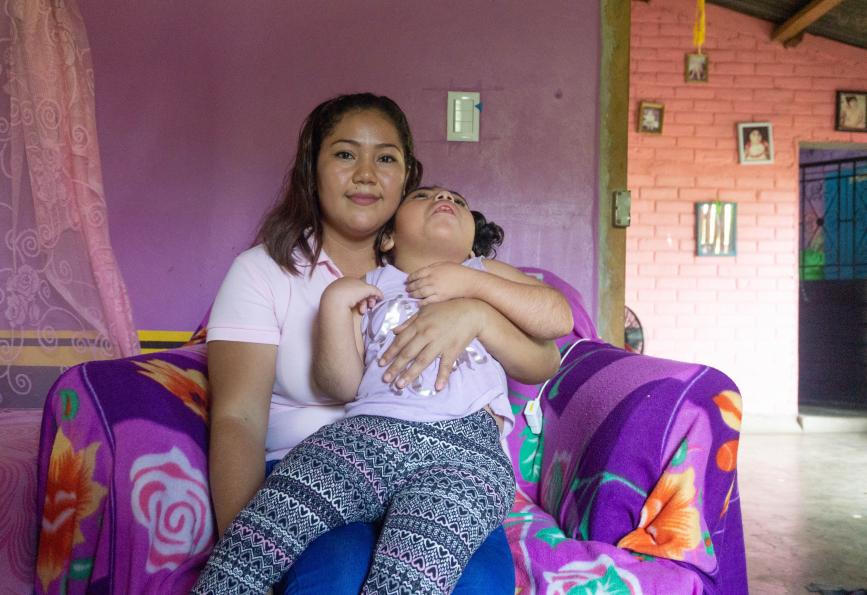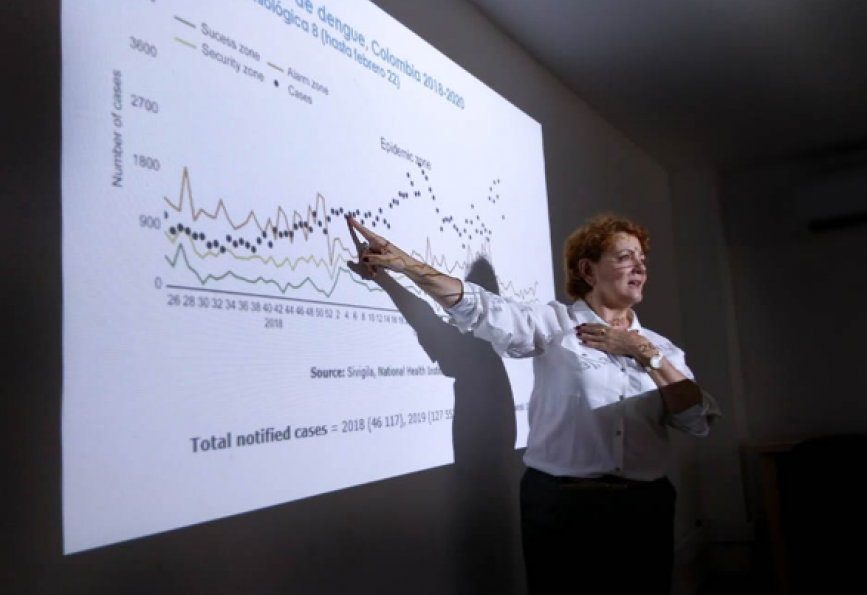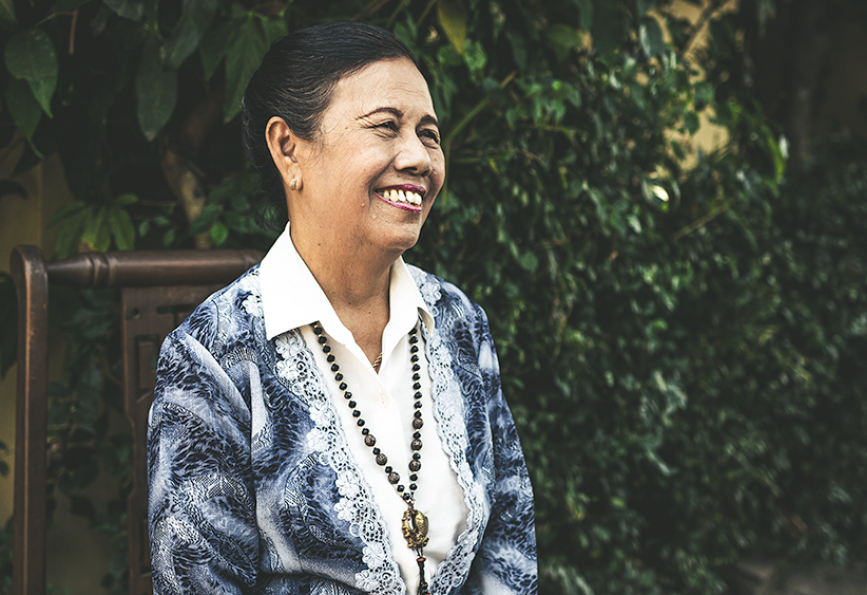In some ways, the Aedes aegypti mosquito is an equal opportunity predator: as long as you’re human, you could be its next meal. But when it comes to mosquito-borne diseases like dengue, Zika, chikungunya and yellow fever, it isn’t that simple.
Women may be just as likely as men to contract mosquito-borne diseases, but they are impacted by them in specific ways, from health and pregnancy outcomes to an increased burden of unpaid care, both at home and in the healthcare sector.
Here's how mosquito-borne diseases uniquely impact women.
Health and Pregnancy

There are many different kinds of mosquito-borne diseases with many different symptoms and outcomes. But when we talk about women, the virus that first comes to mind is Zika.
Most people with Zika virus infection do not develop symptoms. But in some cases, women who are infected with Zika virus during pregnancy bear children with serious health conditions, such as a smaller than expected head size (called microcephaly), brain development problems, impaired vision, decreased joint movement, and stiff muscles that make movements difficult.
They may also have lasting special needs as the conditions listed above could hamper their progress in moving, learning, speaking, and playing.
This was what happened to Silvia’s daughter, Francisca. Between 2014 and 2017, global Zika outbreaks were recorded in Africa, the Americas, Asia and the Pacific. In 2016, Silvia was one of 350 pregnant women in El Salvador who had babies who were infected with the Zika virus, which can be contracted either via mosquitoes or through sex with an infected partner. Francisca, Silvia´s daughter, was born with most of the health conditions associated with Zika.
While Zika has the most marked impact on women’s health, dengue also has risks that are specific to women and girls. Some studies have indicated an increased risk of severe disease and death among female dengue patients than males, both in children and adults. Pregnant women who are infected with dengue can also pass the virus onto their foetus, which can result in a low birth weight, premature birth or even death of the foetus.
For adolescent girls experiencing severe dengue, the virus can also lead to excessive menstrual bleeding, which can cause further health complications.
Unpaid care
Diseases like dengue can have dire health consequences for those infected. But they can also stop children from going to school and adults from going to work, which puts additional strain on caregivers who are usually supporting other children and extended families while trying to work themselves.
More often than not, these caregivers are women.
Globally, women complete three-quarters of unpaid care work, giving it 3.2 times more of their time than men. This means that when someone in her family falls sick, it is usually the mothers, grandmothers, daughters or aunts who are taking on the responsibility of care.
This was the case for Thilaka Hettikodahe, who hosted one of the World Mosquito Program’s BG traps when we began Wolbachia mosquito releases in Colombo, Sri Lanka. When her young son contracted dengue, she was terrified for both her son’s welfare and how she would manage on her own.
Factsheet

Because of traditionally held gender norms, unpaid care work for women often involves water collection and storage, which can increase women’s exposure to mosquitoes and contracting a mosquito-borne disease.
Work
The burden of unpaid care placed upon women doesn’t just eat at their time and resilience, as it did with Mrs Hettikodahe. It also plays into the bigger problem of employment.
Depending on where you live, taking time off work to care for those afflicted with mosquito-borne disease can mean relying on entitlements like personal leave. But this is only true of those in formal employment.
When you take away agriculture, women make up a disproportionate amount of the world’s informal workers. While men make up the bulk of informal workers as a global average, there are more women in low to lower-middle income countries working in the informal sector. They’re also more likely to work in vulnerable roles such as domestic workers.
By its nature, informal work denies workers the protections such as paid leave, health insurance and employment contracts that help secure their jobs if they or someone they care for falls ill. This means that in the event of a mosquito-borne disease infection, women can carry the stress of not just their families health, but their livelihoods and access to healthcare.
Healthcare workers

The COVID-19 pandemic has shown just how reliant our society is on healthcare workers. From those sharing information in communities to nurses tending to the sick, healthcare workers are critical in the fight against mosquito-borne diseases. And globally, 70% of healthcare workers are women.
Community health workers play a key role in supporting the World Mosquito Program to protect communities from mosquito-borne diseases. They run health fairs to help inform their communities about preventative measures, care for those who are infected, and drive community health campaigns to raise awareness about the dangers.
While women make up the majority of the healthcare sector, they are underrepresented in senior leadership roles when compared to men and much more likely to receive either a low wage or no wage at all. The good news is this is beginning to shift, and more and more women are making it into senior positions. Women like Dr Maria Patricia Arbelaez, a doctor who works with the World Mosquito Program to measure the public health impact of the Wolbachia method in Colombia.
Community engagement
Women healthcare workers like Dr Arbelaez play a critical role in protecting communities. But women are also extremely active when it comes to engaging their communities about mosquito-borne disease prevention.
The World Mosquito Program engages people of diverse genders, ages, ethnicities and sexual orientations to ensure our Wolbachia method is accepted by as much of the community as possible. Women’s groups and women community leaders are also key partners in informing, engaging and supporting their communities to reduce mosquito-borne disease.

Erlin Tri Rahayu is a community leader who gladly spreads the news about the benefits of Wolbachia mosquitoes. She and other women have welcomed the program to their community. When Wolbachia mosquito releases started in Kricak, Indonesia, women like Erlin were some of the earliest supporters.
“It was easy for women to adjust and start supporting World Mosquito Program activities. We were able to explain the benefits of the program to different groups with different levels of understanding,” she said.
Erlin is not alone. In communities around the world, women play a critical role in raising awareness about the dangers of mosquito-borne diseases, supporting our Wolbachia mosquito releases, and implementing complementary methods of protection such as minimising waste, emptying water containers, and community education about mosquitoes.
We look forward to working with them to help create a world where diseases like dengue and Zika no longer impact the health, children and livelihoods of women.
Join our global community!
Help us spread awareness, take action, and save lives. Subscribe now and be a part of the solution!

